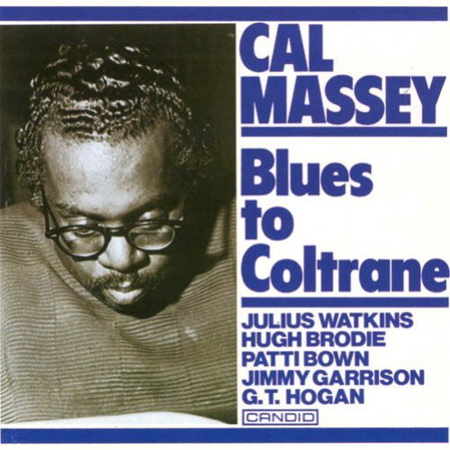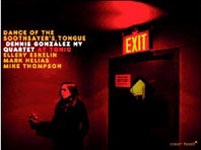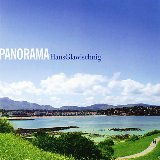Home » Jazz Articles » Album Review » Cal Massey: Blues to Coltrane
Cal Massey: Blues to Coltrane
The present recording appears to have been made in 1961 for Nat Hentoff's Candid Records, when Massey was 32. It was immediately lost and forgotten, then rediscovered and released for the first time, posthumously, in 1987. As for Massey, he died of a heart attack in 1972 at the age of 43, the night after he had seen the preview performance of Lady Day: A Musical Tragedy, to which he had contributed several songs.
Listening to this new edition is an experience of great ambivalence. The music is as original as it is conventional and accessible. It's as well played as it is occasionally somewhat ragged and amateurish in its construction and execution. Jimmy Garrison's bass on "Blues to Coltrane" gets the proceedings off to a strong, reassuring start, but his resonant sound subsequently gets lost in the audio mix until a second unaccompanied walking bass solo later in the program. Massey's trumpet at times reveals a minimalist quality reminiscent of Miles Davis' seminal Walkin' session (Prestige 1954). Julius Watkins' French horn proves a gratuitous solo instrument, limiting the already brief playing time of the leader. Patti Bown, despite her impressive credits, is on this occasion a "dabbling" pianist (on an out-of-tune piano at that), her feathery touch making it difficult to appreciate her contributions or even to distinguish her comping from her soloing.
The revelation on the date is a tenor player by the name of Hugh Brodie, who sounds closer to John Coltrane than any number of players who have provoked the comparison. In fact, on "These Are Soulful Days," it's likely many listeners would guess Coltrane in a blindfolded heartbeat—he's that close to the legendary tenor giant in terms of his technique, harmonic-melodic conceptions and, above all, intense, gripping sound.
Blues to Coltrane will strike many as a dismissible album, though it's very likely a touchstone to the music and life of Cal Massey—undeniably sad yet intermittently satisfying—delicate, frail, vulnerable yet possessing unmistakable honesty and self-candor (twice during his solos he quotes "Nobody knows the trouble I've seen," and he can be heard scolding himself when he misses a note).
If nothing else, the recording helps keep alive the name "Cal Massey," even if the man himself remains a shadowy and inscrutable figure, forever inviting questions that seem to go to the heart of the jazz life itself.
Track Listing
Blues to Coltrane; What's wrong?; Bakai; These Are Soulful Days; Father and Son.
Personnel
Cal Massey
trumpetCal Massey: trumpet; Julius Watkins: French horn; Hugh Brodie: tenor sax; Patti Bown: piano; Jimmy Garrison: bass; G.T. Hogan: drums.
Album information
Title: Blues to Coltrane | Year Released: 2008 | Record Label: Candid Records
Tags
PREVIOUS / NEXT
Support All About Jazz
 All About Jazz has been a pillar of jazz since 1995, championing it as an art form and, more importantly, supporting the musicians who make it. Our enduring commitment has made "AAJ" one of the most culturally important websites of its kind, read by hundreds of thousands of fans, musicians and industry figures every month.
All About Jazz has been a pillar of jazz since 1995, championing it as an art form and, more importantly, supporting the musicians who make it. Our enduring commitment has made "AAJ" one of the most culturally important websites of its kind, read by hundreds of thousands of fans, musicians and industry figures every month.






















